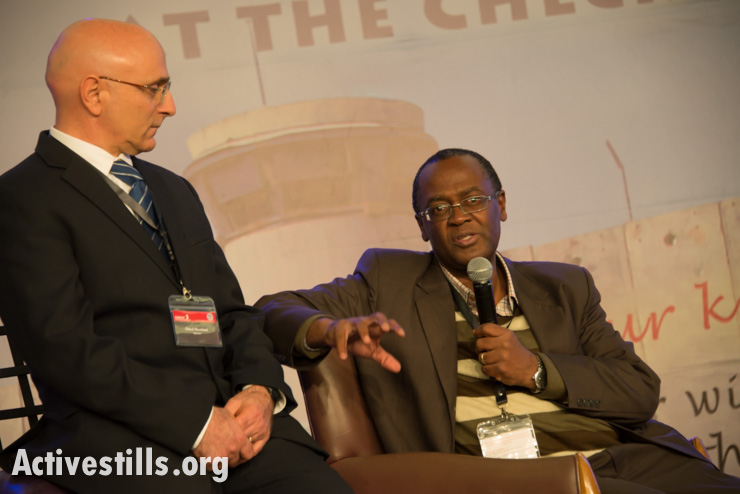Why does most coverage discussing Israel and the ‘A-word’ exclude the voices of black South Africans?
Text and photo by: Ryan Rodrick Beiler/Activestills.org

Noticeably absent from most coverage of U.S. Secretary of State John Kerry’s use of the term “apartheid” are the voices most qualified to make the comparison. The Daily Beast article that broke the Kerry story at least quotes the 1998 Rome Statute, the definition of apartheid under international law: “inhumane acts… committed in the context of an institutionalized regime of systematic oppression and domination by one racial group over any other racial group or groups and committed with the intention of maintaining that regime.”
But rather than providing any further context as to whether this definition applies to Israel, the article then goes on to quote former President Jimmy Carter, President Barack Obama, Judge Richard Goldstone, State Department spokeswoman Jen Psaki, and American Jewish Committee director David Harris as to whether the use of the term is appropriate.
Unsurprisingly, Kerry immediately backpedaled once the comments were publicized, issuing an apology. The New York Times coverage of his damage control in turn quoted AIPAC statements, Senator Marco Rubio, J Street (you know, for balance) and Aaron David Miller.
With such coverage, it feels important to ask the question posed by Rev. Moss Ntlha, General Secretary of the Evangelical Alliance of South Africa, in his message to the Christ at the Checkpoint conference in Bethlehem this March (click here for video). After two trips to Israel and Palestine, the first initiated by Jewish friends, the second at the invitation of Palestinians, he recalls discussions upon returning home:
We talked about whether or not Israel was an apartheid state. I said, between you and me—I am black, you are white south African Jews—who do you think has more credibility in deciding whether or not whether this is apartheid?
Rev. Ntlha isn’t alone in his perspective; anti-apartheid stalwart Rev. Allan Boesak has made similar comments. In an interview about a forthcoming book co-authored with his daughter Reverend Mpho Tutu, yesterday, HuffPostLive asked Archbishop Desmond Tutu to comment on the Kerry controversy, with this response: “I visit the Holy Land and I see things that are a mirror image of the sort of things I experienced under the apartheid.” Why are these voices of such moral authority missing from more mainstream coverage?
Read more:
State Department stumbles: If not apartheid, then what?
Kerry apologizes for speculating that Israel could do something bad
If this isn’t apartheid, then what is it?

